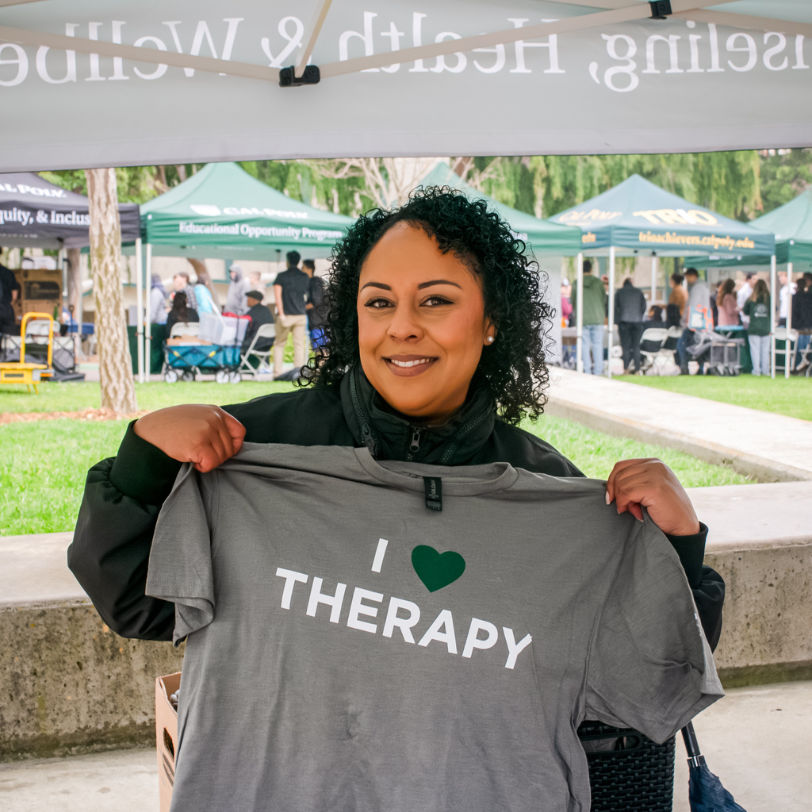How Do I Support Student Survivors?
YOUR ROLE IN CREATING A SUPPORTIVE ENVIRONMENT FOR STUDENTS
A majority of survivors only disclose to one person, and only 20% of student victims report to law enforcement. Your reaction will either help or hinder their healing process, and being available as an active supporter is vital. As a reminder, faculty and staff are mandated reporters, but that conversation can still be a healing, comforting experience.
The following are general guidelines to being an advocate for students, and supporting them throughout the entire experience.
- Be a source of support before they've disclosed to you.
- Put a Safer sticker, awareness ribbons (purple for Domestic Violence, teal for Sexual Assault, yellow for Stalking) or some kind of marker in your office that shows you are aware of the issue, and can be a resource to them if necessary. Consider keeping a stack of Safer business cards in your office. Even if the student doesn't want or need to disclose to anyone while visiting office hours for an unrelated issue, it will be a marker that you are available for support.
- Include Safer's resources on your syllabus, and address our available support options in class. For sample syllabus language, click here!
- Invite Safer to present in your class. We offer presentations ranging from 15 minutes to 2 hours, and can cater our discussion to any topics that you deem relevant to your classroom.
- Create a class project or assignment that encourages interaction with Safer. This can include having the group plan an event with Safer, create a video, or attending a Safer event. Meet with our Prevention Specialist to brainstorm!
- Co-host an event with Safer. There are endless ways to collaborate on new events for Safer, with the topic of gender- & power-based violence affecting all students on campus through one way or another. Reach out if you have any ideas, or if you would like to get involved with existing projects!
- Remember: gender- & power-based violence is a massive problem on college campuses across the nation, Cal Poly included. Statistically, you will be speaking to many victims and survivors in your classrooms. Keep this in mind, and be conscious of your words. Language matters.
- Believe them and listen to them.
- If a student does approach you wanting to confide in you, the most important thing you can do is believe and listen to them.
- Do not victim blame - sexual assault is never the victim/survivor's fault; it is always the perpetrator's fault. Victims do not "ask for" or "deserve" to be assaulted. Do not ask what they wore, how they acted, their level of sobriety, etc. - this is incredibly damaging and places the blame and responsibility on the survivor. We need to place the responsibility & accountability where it belongs - with the person who harmed.
- Provide resources to support the survivor.
- Be aware of resources on campus and in San Luis Obispo. Familiarize yourself with the broad scope of Safer's resources, as well as RISE, Stand Strong, Cal Poly Police Department, Title IX Office, and the Cal Poly Counseling Services. Offer these options to your students.
- Empower them.
- Let the survivor guide the process and make all the decisions. Gender- & power-based violence may take away the survivor's feelings of autonomy, so regaining that control over their life is important. It is not your job to investigate the details of what happened, to tell them what happened to them, or to label them a victim/survivor. Give them the power to dictate their path of recovery, and support them the entire time. If you struggle with language around this, you can always meet with one of our professional Campus Advocates for assistance.
- Offer academic accommodations.
- Students will often request academic accommodations from the Office of Student Rights & Responsibilities, to help ease the tremendous amount of stress they may be under. We encourage faculty and staff to work with students in distress to create a plan of action for completing coursework while still taking care of themselves.
- Don't interfere with an ongoing investigation.
- Allow Cal Poly Police, the Title IX Officers and the Office of Student Rights and Responsibilities to conduct their investigation if the student does decide to report.
- Remind them that they have the right to confidential advocacy and accompaniment through Safer.
- Consult Safer if you have any questions.
- Please visit our office in UU-217, Monday through Friday, from 9am-5pm if you have any questions. Or, feel free to email safer@calpoly.edu. Gender- & power-based violence is a sensitive topic, and Safer staff is trained to help.



